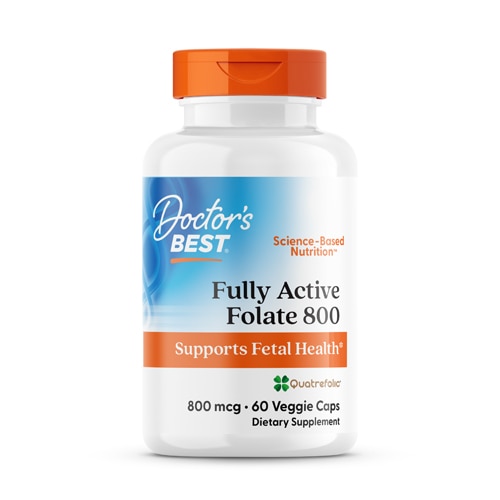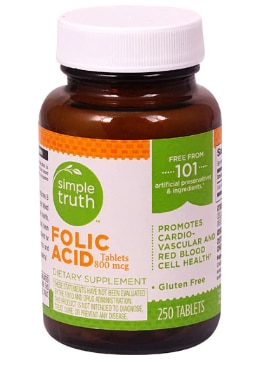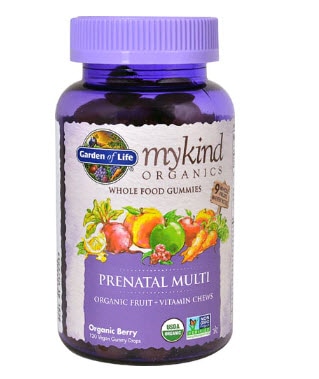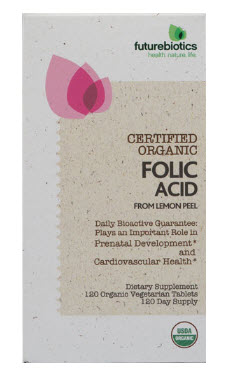If you were poking around on the internet in May 2019, you might have stumbled across a Google Doodle honoring medical researcher Lucy Wills on what would have been her 131st birthday.
Google often changes its logo via colorful, artsy Google Doodles to mark holidays and anniversaries, and to celebrate famous scientists, artists and pioneers. On May 10, 2019, Google bestowed that honor upon Wills.
Why recognize Wills? Her groundbreaking work in prenatal care led to the discovery of folic acid as a vital vitamin for women of childbearing age in the quest to prevent birth abnormalities called neural tube defects — with those affecting the brain (anencephaly) and the spine (spina bifida) being the most common.
Yet just as you might not have known who Wills was, you might not know about the critical role that folic acid plays in prenatal care. And you wouldn’t be alone.
What is folic acid?
A 2013 survey of women in the United Kingdom found that just 40 percent realized folic acid — a manmade version of vitamin B9 — should be taken at least one month before pregnancy, and only 36 percent to 46 percent of the women were aware of the natural sources of folic acid. Meanwhile, surveys from 2003 to 2007 of women in the U.S. who were of childbearing age showed that just 40 percent took folic acid daily and only 12 percent knew folic acid should be taken before pregnancy.
“I don’t believe women are informed enough of the importance of folic acid,” says Dr. Robert Atlas, chair of obstetrics and gynecology at Mercy Medical Center in Baltimore.
Medical professionals like Atlas recommend that women of childbearing age take at least 400 micrograms of folic acid every day. March of Dimes, a nonprofit that promotes the health of women and babies, suggests taking a daily multivitamin with at least that much folic acid. Atlas says a prenatal vitamin contains 800 to 1,000 micrograms of folic acid.
The federal Office of Women’s Health warns that you shouldn’t consume more than 1,000 micrograms of folic acid a day unless your doctor prescribes a higher amount.
The Mayo Clinic advises that if you’ve given birth to a baby who has a neural tube defect, your healthcare provider might recommend a supplement containing a higher dose of folic acid — such as 4 milligrams (4,000 micrograms) — before and during subsequent pregnancies.
March of Dimes says women of reproductive age can get folic acid from a daily multivitamin, a daily prenatal vitamin or a daily folic acid supplement.
Folic acid food sources
These recommendations are in addition to the folate (the non-synthetic form of folic acid) that you can gain through your diet. Natural sources include:
- Beef liver.
- Leafy green vegetables, particularly spinach, broccoli and Brussels sprouts.
- Romaine lettuce.
- Oranges and orange juice.
- Black beans, kidney beans and pinto beans.
- Egg yolk.
- Dairy products.
- Folic-acid-enriched bread, cereal, rice and pasta.
While folate shows up in a number of foods, Atlas says women of childbearing age typically can’t consume enough through eating alone, so they should supplement their diets with folic acid. (You might see the terms “folate” and “folic acid” used interchangeably; while they are similar, your body doesn’t metabolize them in the same way.)
Taking folic acid before pregnancy
Now, why should a woman take folic acid if she’s not trying to get pregnant?
As Atlas explains, about half of all pregnancies are unplanned, so women of childbearing age who aren’t taking folic acid face a greater risk of fetal abnormalities. Neural tube defects like anencephaly and spina bifida occur in the first month of pregnancy, often before a woman realizes she’s pregnant, according to March of Dimes.
Folic acid helps form the neural tube during the early stages of pregnancy. The neural tube is what eventually develops into the brain and spinal cord.
March of Dimes estimates 3,000 neural defects could be prevented each year in the U.S. if all women capable of having a baby took daily multivitamins containing folic acid.
In one survey, 34 percent of women reported taking a multivitamin before they knew they were pregnant, according to March of Dimes, and 36 percent of women of childbearing age reported they weren’t taking any vitamin or mineral supplements at all.
While folic acid has long been hailed as a key to preventing certain birth defects, a new study shows taking a folic acid supplement daily before pregnancy might reduce the risk of pregnancy-related diabetes. The study, published in April 2019 in the journal Diabetes Care, was carried out by researchers at the National Institutes of Health and other institutions.
Compared with women who didn’t take a folic acid supplement, those who took less than 400 micrograms were 22 percent less likely to develop pregnancy-related (gestational) diabetes, the study found, while those who took 600 micrograms were 30 percent less likely to develop the condition.
And there’s more promising news regarding folic acid.
A study published in February 2018 in the journal JAMA Psychiatry concluded taking a prenatal vitamin each day during pregnancy might reduce the risk of giving birth to a second child with autism spectrum disorder. Folic acid might play a part in the decreased risk, but researchers caution that more research is required to shore up the connection between prenatal vitamins and reduced odds of recurring autism.†
Additionally, folic acid might contribute to a lower incidence of preterm birth, congenital heart disease, and cleft lip or cleft palate, according to a study published in 2011 in Reviews in Obstetrics & Gynecology.
“Thanks to a wide range of benefits, folic acid is considered a treasure trove of health benefits,” the Natural Food Series website points out.
†These statements have not been approved by the Food and Drug Administration. These products are not intended to diagnose, treat, cure or prevent disease.







